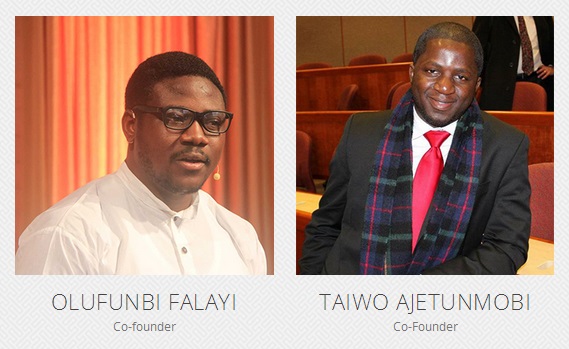The startup ecosystem lexicon is so ridden with industry-specific usages and jargon that it’s quite easy to get hung up on semantics when you are in fact saying the same thing. Or not. Like the differences between accelerators and incubators.
A previous post on TechCabal listed Passion Incubator as one of the seven known technology startup accelerators that are active in Nigeria. After some back and forth with the founders, Olufunbi Falayi and Taiwo Ajetunmobi via email, they made it known in no uncertain terms that even though they do not in fact have an “accelerator fund”, they run an “accelerator class”. That is not confusing. Not at all.
What is not in doubt however is that Passion Incubator is really that — an incubator. They aim to provide business support for early stage technology startups.
Two things make them very different from the Co-Creation Hub, pioneer of the incubator model in Nigeria. First is that the incubator has capped the number of startups it will accept at five per cycle. The second is that unlike the CcHub, they are quite clear about the fact that they will take equity in each of the startups that they accept into their incubator.
How it works – Startups that make the cut are inducted into a 6 month accelerator class. After they “graduate”, they get an additional 6 months free access to the Incubator’s. During the duration of the accelerator class, the incubator’s managers work directly with the startups to build out their MVPs. Next, they tee them up to receive investment.
Cashless acceleration
A common saying in the startup world is when you ask for money, you get advice. Ask for advice on the other hand, and you will probably get money too. Of course, most entrepreneurs still go around asking for money. If they knocked on Passion Incubator’s doors, they won’t find it. Instead of up-front cash, Passion Incubator plans to provide product development and business strategy support as well as access to investors who will fund the startup as soon as they validate their businesses.
“I don’t think we need another $1M accelerator in Yaba”, says Taiwo, one of the founders. “We need incubators that are true partners with the startups. Helping them refine everything from their product design through to their revenue model and customer acquisition strategy. We want to get our hands dirty with these guys and really help them build valuable companies out of their ideas”.
In consideration of their support, they will receive equity from the startups. Passion Incubator’s founders believe that there is a significant gap in the Nigerian startup ecosytem for early stage, high-touch intervention. The amount of equity that they expect to receive in return for their commitment can range from ten to twenty percent.
“It depends on where the startup is in their life-cycle and how much incremental value we think we can add to them” Taiwo said.
For an ecosystem where funding is a sore point, the idea of cashless acceleration is clearly far out, and is sure to provoke a lot of critical reaction from the community. There are already those who are wary of the latest Nigerian accelerator trend. And these have funds. Some of the concern will be well founded. But a lot of it will be knee-jerk.
Taiwo and Funbi are not deluded that their method will be well received in all quarters. They aren’t deterred either. According to them, their leveraged resource model has precedent — in Nigeria’s agricultural sector where impact investors provided farm input and direct support services to groups of farmers in lieu of a loan — with positive results. Not exactly apples to apples when it comes to tech startups, but in theory, tweaked to suit the particular context, a similar approach could work. Based on their proposed incubation timeline, it will take a least a year to prove the validity or otherwise of their thesis.
Passion Incubator’s workspace is located in Yaba, for obvious reasons. The managers are prepping the facility up in anticipation of the first batch of startups who are commencing their accelerator class on the 14th of April. Before that, there will be an open day to introduce the new incubator to the local technology community.
Photo Credit: Darwin Bell and Frodrig via Compfight cc




















